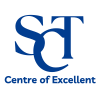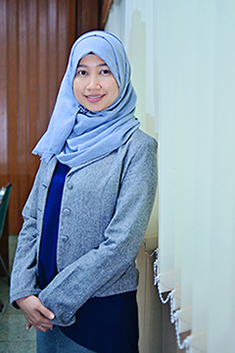Pengaruh Medication Therapy Management (MTM) Terhadap Pengetahuan dan Kepatuhan Pasien Hipertensi di Puskesmas Kota Yogyakarta
Downloads
Pendahuluan: Hipertensi adalah salah satu penyakit kronis penyebab kematian pada kasus kardiovaskular di dunia maupun di Indonesia. Pengobatan hipertensi dilakukan dalam jangka waktu panjang, sehingga diperlukan pengetahuan dan kepatuhan yang baik terkait hipertensi. Peningkatan pengetahuan akan mengarah pada kemajuan berpikir tentang perilaku kesehatan yang lebih baik sehingga berpengaruh terhadap kepatuhan dalam pengobatan dan terkontrolnya tekanan darah. Medication Therapy Management (MTM) adalah salah satu metode yang digunakan untuk meningkatkan pengetahuan dan kepatuhan pasien hipertensi secara individual. Tujuan: Penelitian ini bertujuan untuk mengetahui pengaruh pelayanan berbasis Medication Therapy Management (MTM) terhadap pengetahuan dan kepatuhan pasien hipertensi di Puskesmas Kota Yogyakarta. Metode: Metode yang digunakan adalah quasi-experimental one group with pretest-posttest design. Data dianalisis secara statistik menggunakan Wilcoxontest untuk mengetahui perbedaan hasil sebelum dan sesudah pemberian intervensi. Hasil: Penelitian ini diikuti oleh 44 orang, 63,6 % jumlah responden yaitu perumpuan, usia paling banyak 55 - 64 tahun 40,9%, rata-rata pendidikan terakhir adalah SMA 59,1 %, lama pasien menderita hipertensi rata-rata 1 - 10 tahun serta 15,9% dengan komplikasi DM, 6,8 % dengan hiperlipidemia dan 9,1 % dengan DM + Hiperlipidemia. Hasil penelitian diperoleh peningkatan rata-rata skor pengetahuan setelah mendapatkan pelayanan berbasis MTM yaitu dari 14,3 ± 3,766 menjadi 20,32 ± 2,399 dengan p = 0,000 dan penurunan rata-rata skor kepatuhan yaitu 1,64 ± 1,464 menjadi 0,39 ± 0,920. Kesimpulan: Dapat disimpulkan bahwa intervensi dengan metode pelayanan berbasis Medication Therapy Management (MTM) oleh apoteker terbukti meningkatkan pengetahuan pasien mengenai penyakit hipertensi dan pengobatannya secara bermakna dan berperan signifikan dalam meningkatkan kepatuhan pasien hipertensi.
Akoko, B. M., Fon, P. N., Ngu, R. C. & Ngu, K. B. (2017). Knowledge of Hypertension and Compliance with Therapy Among Hypertensive Patients in the Bamenda Health District of Cameroon: A Cross-sectional Study. Cardiology and Therapy; 6; 53–67.
Ambaw, A. D., Alemie, G. A., Yohannes, S. M. & Mengesha, Z. B. (2012). Adherence to Antihypertensive Treatment and Associated Factors Among Patients on Follow Up at University of Gondar Hospital, Northwest Ethiopia. BMC Public Health; 12; 282.
Baliz, E., S., Isikli, B., Metintas, S., Kalyoncu, C. (2012). Hypertension Knowledge-Level Scale (HK-LS): A Study on Development, Validity and Reliability. International Journal of Environmental Research and Public Health; 9; 1018–1029.
Beyhaghi, H., Reeve, B. B., Rodgers, J. E. & Stearns, S. C. (2016). Psychometric Properties of the Four-Item Morisky Green Levine Medication Adherence Scale among Atherosclerosis Risk in Communities Study (ARIC) Participants. Value Health; 19; 996–1001.
Dipiro, T. J., Robert, L. T., Gary, C. Y., Gary, R. M., Barbara, G. W., L. & Michael, P. (2017). Pharmacotherapy a Pathophysiologic Approarch 10th Edition Chapter 13: Hypertension. New York: McGraw Hill.
Hadi, N. & Rostamigooran, N. (2004). Determinant Factors of Medication Compliance in Hypertensive Patients of Shiraz, Iran. Archives of Iranian Medicine; 7; 292-296.
Jankowska-PolaÅ„ska, B., Uchmanowicz, I., Dudek, K. & Mazur, G. (2016). Relationship between Patients & RSQUO; Knowledge and Medication Adherence Among Patients with Hypertension. Patient Preference and Adherence; 10; 2437–2447.
Kemenkes RI. (2013). Riset Kesehatan Dasar Republik Indonesia. Jakarta: Kementerian Kesehatan Republik Indonesia.
Kristina, S. A., Dewi, P. P., Widiastuti, W. (2019). Effectiveness of Counseling for Hypertensive Patients on Adherence and Blood Pressure Outcome in Primary Care Provider in Indonesia. International Research Journal of Pharmacy; 10; 40–44.
Lee, G. K. Y., Wang, H. H. X., Liu, K. Q. L., Cheung, Y., Morisky, D. E., Wong, M. C. S. (2013). Determinants of Medication Adherence to Antihypertensive Medications among a Chinese Population Using Morisky Medication Adherence Scale. PLoS ONE; 8; e62775.
Ribeiro, C. D., Resqueti, V. R., Lima, I., Dias, F. A. L., Glynn, L. & Fregonezi, G. A. F. (2015). Educational Interventions for Improving Control of Blood Pressure in Patients with Hypertension: A Systematic Review Protocol. BMJ Open; 5; e006583–e006583.
Saleem, F., Azmi, M. & Shafie, A. (2015). A Cross-Sectional Assessment of Health-Related Quality of Life (HRQoL) Among Hypertensive Patients in Pakistan. Health Expectations; 17; 288-925.
Sam, G. K., Thomas, J., Alexander, R. & Varughese, S. A. (2017). Assessment & Evaluation on the Knowledge, Attitude & Practice Towards Medication Therapy Management Among Community of Davangere City. Asian Journal of Pharmaceutical and Clinical Research; 10; 380.
Swandari, M. T. K., Sari, I. P. & Kusharwanti, A. W. (2014). Evaluasi Pengaruh Konseling Farmasis terhadap Kepatuhan dan Hasil Terapi Pasien Hipertensi di Poliklinik Penyakit Dalam RSUD Cilacap Periode Desember 2013 - Januari 2014. Jurnal Manajemen dan Pelayanan Farmasi; 4; 219-229.
WHO. (2003). Adherence to Long-Term Therapies - Evidence for Action. WHO: Geneva.
Widyastuti, S., Yasin, N. M & Kristina, S. A. (2019). Pengaruh Home Pharmacy Care Terhadap Pengetahuan, Kepatuhan, Outcome Klinik dan Kualitas Hidup Pasien Hipertensi. Majalah Farmaseutik; 15; 105.
Wittayanukorn, S., Westrick, S. C., Hansen, R. A., Billor, N., Braxton-Lloyd, K., Fox, B. I., Garza, K. B. (2013). Evaluation of Medication Therapy Management Services for Patients with Cardiovascular Disease in a Self-Insured Employer Health Plan. Journal of Managed Care & Specialty Pharmacy; 19; 385–395.
1. The copyright of this journal belongs to the Editorial Board and Journal Manager with the author's knowledge, while the moral right of the publication belong to the author.
2. The formal legal aspect of journal publication accessibility refers to the Creative Commons Attribution-Non-Commercial-Share Alike (CC BY-NC-SA), which implies that the publication can be used for non-commercial purposes in its original form.
3. Every publication (print/electronic) is open access for educational, research, and library purposes. In addition to the objectives mentioned above, the editorial board is not responsible for copyright infringement


.jpg)















